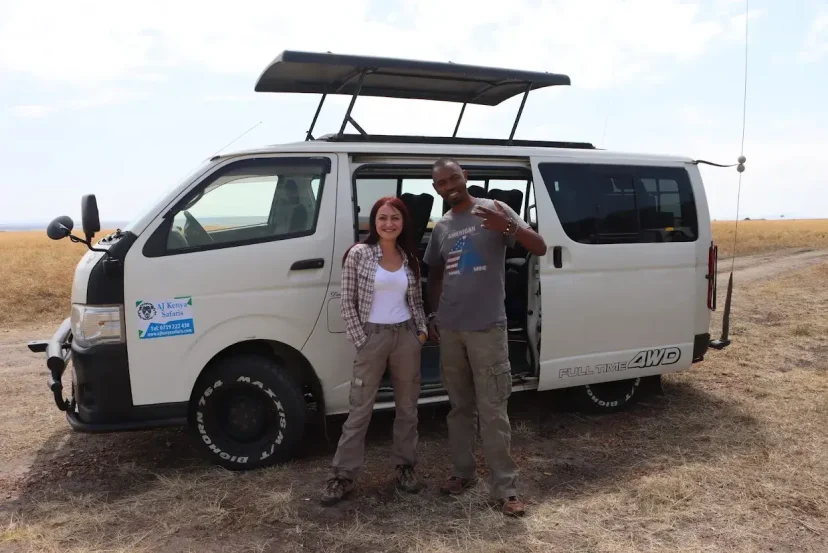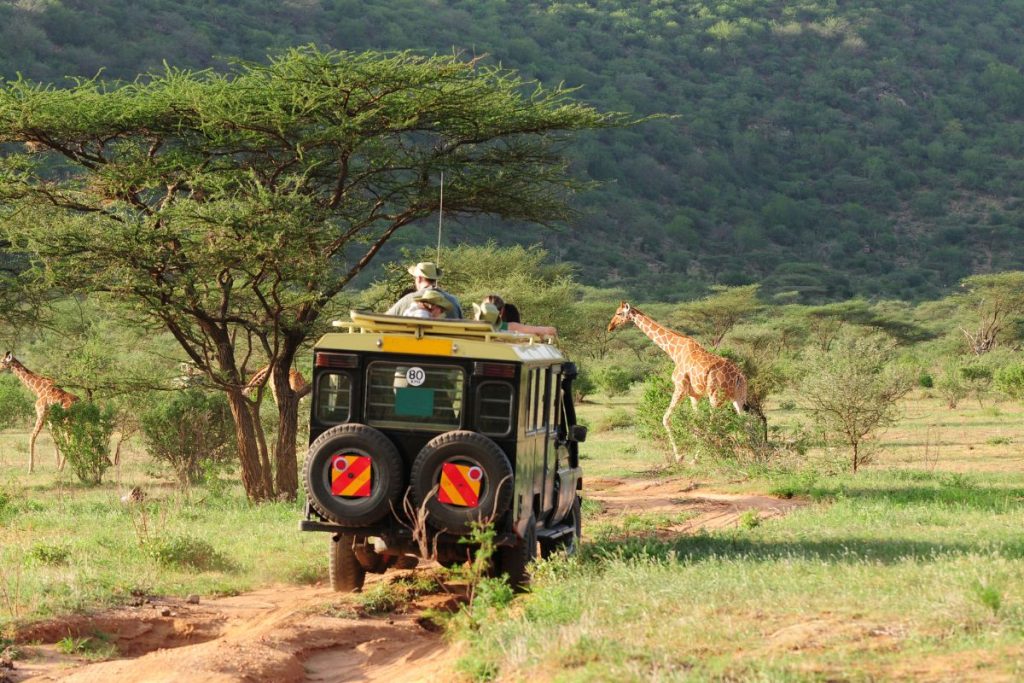New Info To Picking Devil666 Slot Sites
New Info To Picking Devil666 Slot Sites
Blog Article
What Safety And Security Considerations Must I Be Aware Of When I Am In Mombasa?
It is crucial to be aware of safety and security issues when you visit Mombasa in Kenya. This will help ensure an enjoyable and safe journey. Here are a few important things to be aware of:
1. General Safety
Be informed. Keep track of local travel advisory and information from your country of origin.
Register with your Embassy: If you are able to Register with your embassy or consulate in Kenya in order to assist you in the event of an emergency.
2. Health safety precautions
Vaccinations. Make sure that you are up-todate with your regular vaccinations.
Mombasa's malaria has become endemic. Use antimalarial medications as well as insect repellents. Wear long sleeves during the night, and rest under mosquito nets.
Food and water security Drink boiled, bottled or well-cooked water. Avoid ice. Be careful with street food.
3. Personal Security
Be cautious when walking in the dark. Stick to areas that are well lit and well-populated. Avoid walking on beaches at night or in quiet places.
Use hotel safes when storing valuables such as currency, passports, or other important items. Avoid displaying expensive items like electronics or jewelry.
Select a reliable transportation service: Choose registered taxis, ride hailing service, or transportation arranged by your Hotel. Avoid cabs with no markings.
4. Local Laws and Customs
Be modest in your attire. This is especially important when visiting religious sights. Be aware of local traditions.
Kenyan drug laws are extremely strict and entail severe penalties. Do not use illegal substances.
Photographers must always seek permission before taking photographs of people or military and government structures, especially when in rural areas.
5. Beach and Water Safety
Be Safe in the Water. Be aware of local advice. Be sure to use designated swimming areas.
Marine wildlife: Keep an eye out for marine animals such as jellyfishes or sea urchins. Wear appropriate footwear when walking along the beach.
6. Crime Prevention
Petty Crimes: Pickpocketing, bag theft and other minor crimes can happen in busy areas. Keep your belongings in a secure location and watch out for.
Scams: Be cautious of anyone who offers assistance that seems generous or offers that are too good to be real. Use only licensed tour operators.
Emergency Contacts: Be aware with local emergency numbers that include Fire (999), Ambulance (999), and Police (999). Contact information for the consulate or embassy of your nation should be readily accessible.
7. Natural Hazards
Weather: Mombasa enjoys a tropical climate with the potential for heavy rainfall and flooding. This is especially the case during the rainy seasons of April-June and from October to November. Be aware of the weather forecasts.
Sun Protection Apply sunscreen and wear a hat in order to prevent sunburn.
8. Travel Insurance
Comprehensive Coverage. Make certain you are covered for travel that covers emergency medical situations, theft, loss or disruptions. Verify your policy covers water sports like swimming.
With these safety considerations You can rest and take in the beauty of your Mombasa vacation. Take a look at the top kenya day tours for website info including african safari packages, afri safari, kenya safaris and tours, mombasa tour companies, kenya safari tours, kenya safari and beach, trip tour companies, tour and travels, safari trips in kenya, africa tours and more.
What Are The Weather Considerations Should I Know Before I Travel To Mombasa, Kenya?
It is important to understand the weather patterns in Mombasa prior to packing your bags and enjoy your vacation. Here are the most important weather considerations.
1. Climate Overview
The climate in Mombasa is tropical and humid all through the year. Expect warm temperatures ranging between 24degC to 32degC.
2. Seasons
The hot and humid season (November to April) In this time the temperatures are extremely high, and humidity high. The peak season for tourism is January and December.
Long Rains April to June The season of rain brings heavy rains and occasionally thunderstorms. The roads may be slippery, making them difficult to navigate. It is a time of low-season tourism.
Cooler Season (June to October) Take advantage of the lower temperatures and humidity throughout this time. It's a mild climate, ideal for outdoor pursuits.
Short Rains (October to November) Short Rains (October - November): These are brief rainshowers that are not as intense. The rains are typically short and are followed by sunny days.
3. Tips for packing
Lightweight Clothing - Pack clothes that's breathable and lightweight such as cotton or linen to stay cool in the heat of the day. humid.
Rain Gear: If traveling during rainy season, bring a waterproof jacket, an umbrella, and waterproof footwear.
Sun Protection: Use sunscreen that has high SPF. Wear a broad brimmed hat and sunglasses. Wear clothing that covers your skin.
Swimwear: Take your swimwear to the beach or hotel pool.
4. Weather-Specific Activity
Beach Time: The ideal time to go to the beach is in the cooler months (June to October) when the weather is nice and the sea conditions are favorable.
Water Sports: The tranquil, clear water of November through February is perfect for diving, swimming, snorkeling and other water sports.
Wildlife watching: The cooler temperatures (June to October) makes it a better time to go on safaris and take a wildlife tour.
5. Health-related Considerations
Keep hydrated. The hot and humid weather will make it necessary to keep hydrated. Drink plenty of water, particularly when you are spending time outdoors.
Health-related illnesses that are related to heat: Be aware of the possibility of heat exhaustion or heat stroke. Take breaks in the shade, wear loose-fitting clothing and stay away from strenuous activity during the peak heat.
6. Travel Adjustments
Travel during the rainy seasons Be prepared for disruptions in travel if you are visiting during this time. There may be instances where roads are not accessible and outdoor activities may be restricted.
Rainy weather can cause flight delays. Be aware of your travel plans, and prepare contingency plans.
7. Environmental Concerns
Natural hazards. Be aware of the risks associated with heavy rainfall. Keep up to date with the weather and adhere to local safety advice.
Be aware of tides. They can be unpredictable and could significantly impact beach activities. Consult local tide schedules for a safe and secure beachcombing and swimming experience.
If you are aware of these weather-related considerations, you can better plan your holiday activities, pack appropriately, and be safe while enjoying your time in Mombasa. Follow the top island snorkeling in mombasa for more examples including safari trips in kenya, safari mombasa kenya, african safari packages, african safari africa, kenya tours and safaris, holiday packages mombasa, kenya safari and beach packages, african safari excursions, kenya safari and beach packages, kenya safaris and more.
What Environmental Responsibilities Do I Need To Know When Holidaying In Mombasa, Kenya?
Being responsible for the environment when you go on holiday in Mombasa is essential to protect the natural beauty of the place and its diversity. Here are important environmental considerations:
1. Sustainable Accommodation
Eco-friendly Hotels: Select hotels that are committed to sustainability. Look for Eco-Tourism Kenya certifications and other eco-labels.
Join hotel initiatives to conserve water and energy. Recycle sheets and towels, and turn off lights and air conditioning when they are not being used.
2. Responsible Wildlife Viewing
Be respectful of wildlife. Do not disturb animals by ensuring that there is a safe space between you and them. Be sure to follow the instructions of your tour guide.
Do not feed animals. This could cause them to change their normal diet and behaviour.
Do not litter in wildlife reserves. Take all trash with you and dispose of it in a proper manner.
3. Plastic Reduction
Minimize Plastic Use: Avoid single-use plastics. Carry a water bottle along with a reusable bag and tools.
Support Local Initiatives: Join in or help local beach clean-up efforts and organizations that work to reduce plastic pollution.
4. Water Conservation
Mombasa is experiencing water shortages. Shorten your showers and shut off the faucets when they are not in use.
Eco-Friendly Product: Minimize water pollution by using biodegradable, eco-friendly products.
5. Energy Conservation
Reduce energy use: unplug electronic devices when they are not in use and reduce the use of air conditioners.
Encourage Renewable Energy Choose accommodations and tour operators that make use of renewable energy.
6. Sustainable Transportation
Reduce your carbon footprint by taking public transport options, such as matatus or buses whenever it is possible.
You can consider walking or renting bikes to travel short distances. Some areas offer eco-friendly tuk-tuks.
7. Supporting Local Economy
Buy local: Support local businesses by buying food items, souvenirs and arts and crafts from local vendors.
Fair Trade: Choose products that are certified as fair trade to ensure local producers receive fair compensation.
8. Environmental Education
Learn and share. Inform yourself about local conservation efforts as well as the environment. To raise awareness, share what you've learned with your friends and family.
Respect Local Cultures: Learn about and respect local customs and practices related to environmental conservation.
9. Marine Conservation
If you're diving or snorkeling ensure that you avoid touching coral reefs. To safeguard marine life make sure you use a reef-safe sunblock.
Avoid dumping rubbish into the ocean. Join or support marine conservation programs.
10. Ethical Souvenirs
Beware of Wildlife Products. Do not purchase products that are made from endangered species like tortoiseshell or ivory.
Sustainable Materials: Choose items that are made from recycled or sustainable materials.
11. Take part in conservation efforts
Volunteering: Take part in local conservation projects or community-based tourism projects.
Donate to local NGO's in your area. Give funds to conservation organizations that are working to safeguard and conserve the environment.
12. A responsible traveler is a great idea
Small group sizes are recommended to reduce the impact on the environment.
Eco-Tours: Pick tour companies who follow green practices and have a commitment to sustainability.
By keeping these environmental duties in mind, it is possible to contribute to the preservation and beauty of Mombasa and the diversity of this region for the next generations. Follow the recommended kisite mpunguti marine for more advice including tour and travels, kenya safari holiday, facts about kenya, travel tour companies, safar kenya, kenya safari holiday packages, tour and travels, kenya safaris and tours, safari tour, kenya tour operator and more.